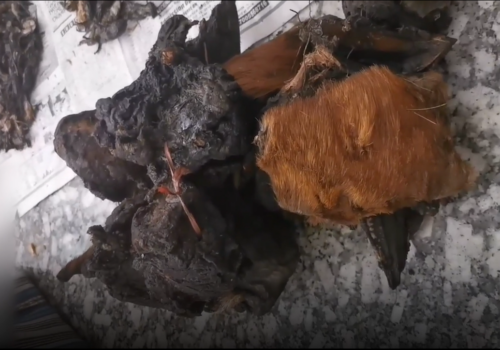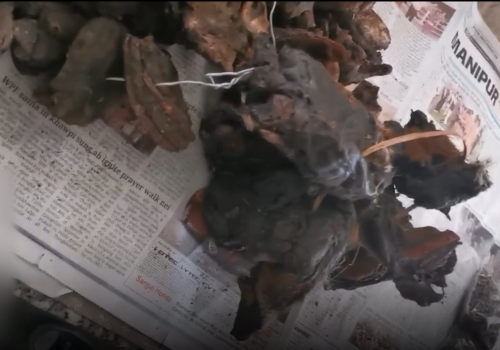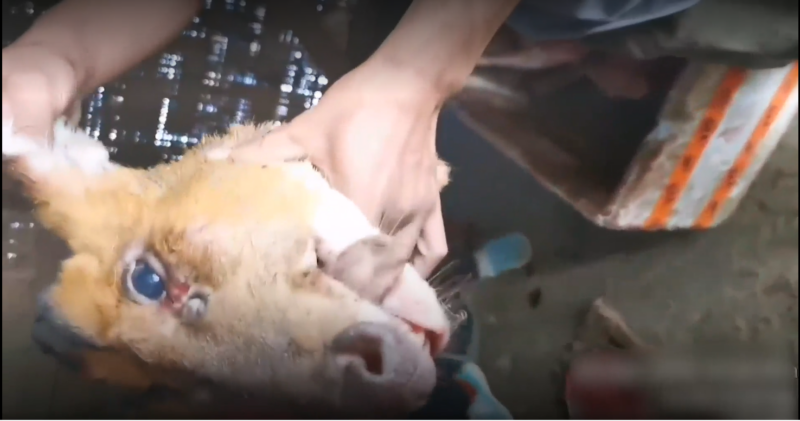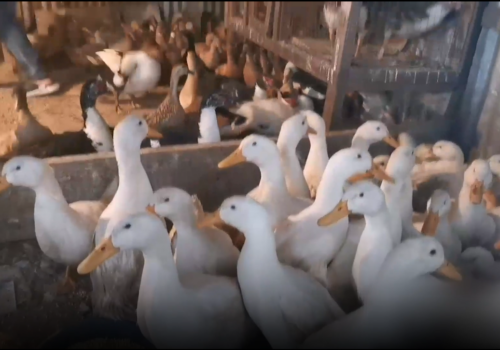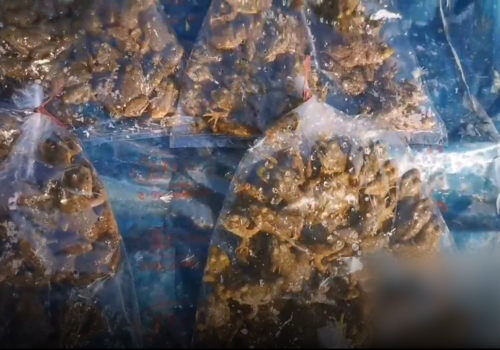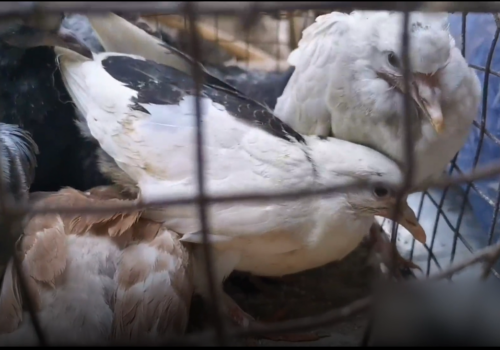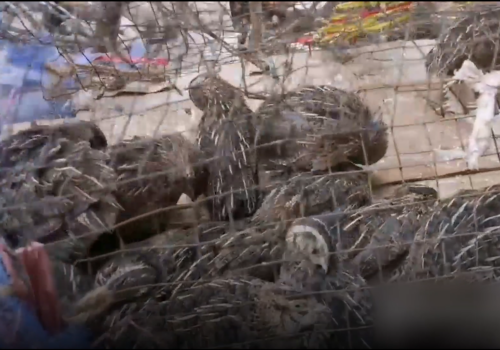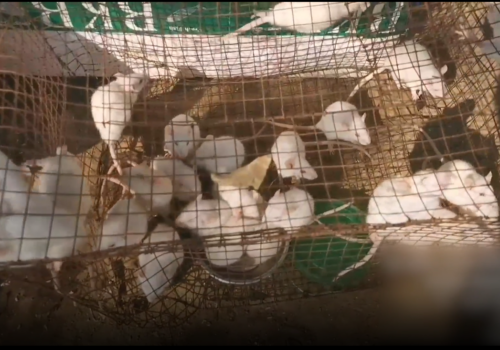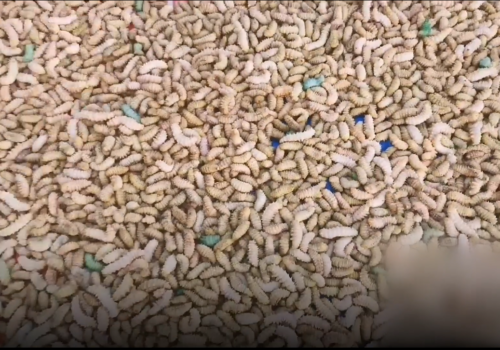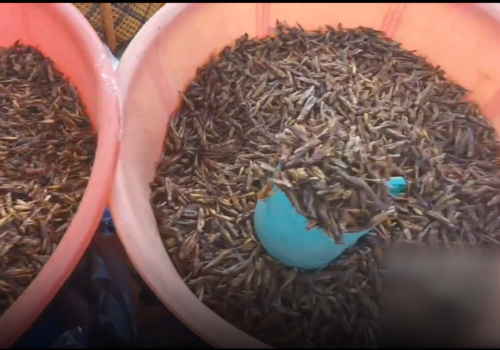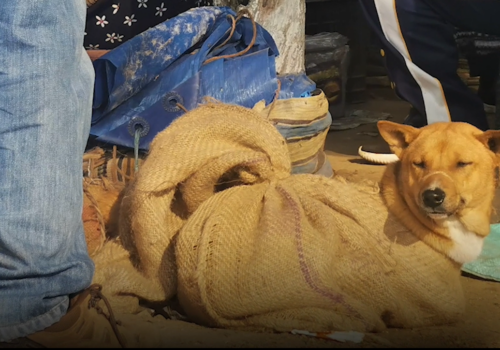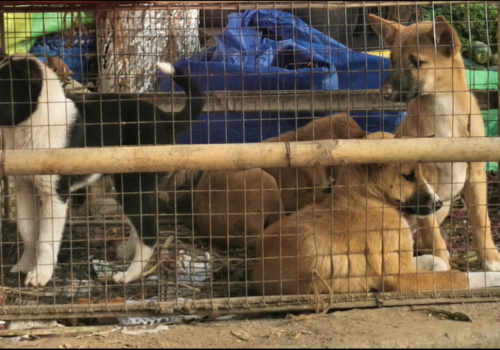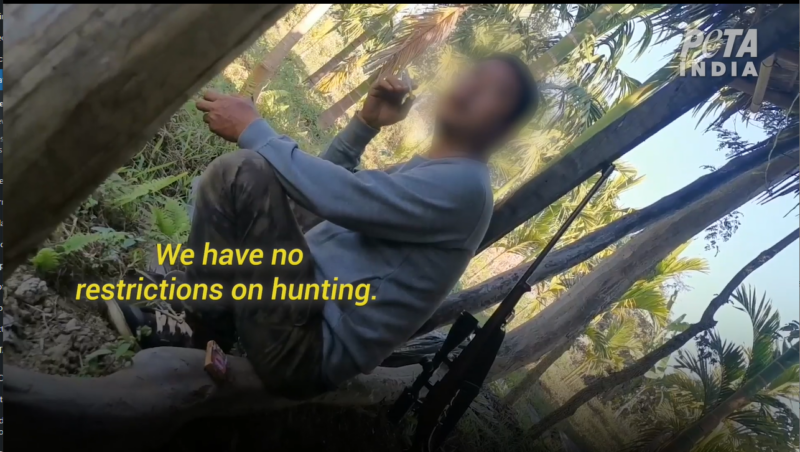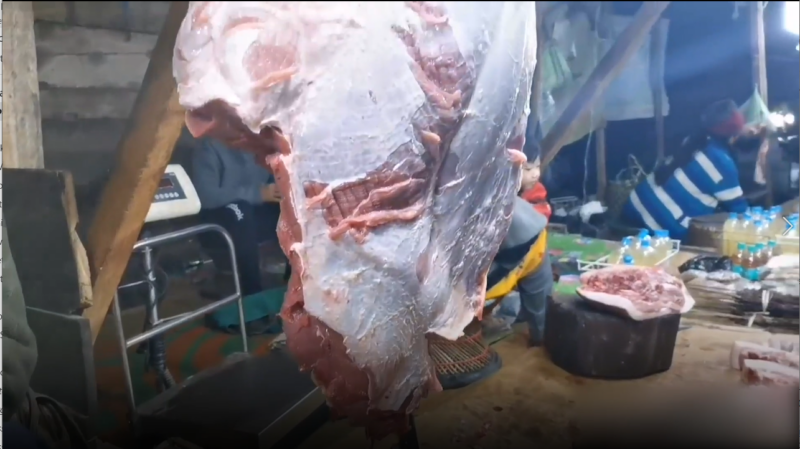A new PETA India investigation into markets in Seppa and Itanagar in Arunachal Pradesh, Nute Bazaar and Senapati Bazaar in Manipur, and Kohima Market, Dimapur Super Market, and New Market in Nagaland revealed rampant violations of the Wildlife (Protection) Act, 1972 (WPA); The Prevention of Cruelty to Animals Act, 1960; and the Food Safety and Standards Act, 2006. These markets are a major threat to these states, the country, and the world at large in our fight against zoonotic diseases.
Meat From Wild Boars, Deer, Frogs, Dogs, and Other Animals Illegally Sold
At Nute Bazaar, the flesh of barking deer, wild boars, and frogs is illegally sold. Sellers and buyers handle the charred animal parts with their bare hands.
At Senapati Bazaar, meat from illegally hunted deer was being sold for Rs 700 to Rs 800 per kilogram.
At Kohima Market, dog meat, live frogs in plastic bags, pigeons, quails, and ducks were sold. Workers handled live and dead animals with their bare hands.
At Dimapur Super Market and New Market, there were containers full of live eels jostling for space, frogs gasping for breath in plastic bags, mice scurrying around in cages, worms heaped on top of each other, and birds stuffed in cages. Puppies were also seen in cages. Dogs were being sold for their flesh. Older dogs’ mouths were tied shut, and their bodies were put in gunny sacks for restraint. Once killed, their innards were removed and their bodies were charred for sale. Dogs are not permitted to be killed for meat in India under the Food Safety and Standards Act, 2006.
In Changki, Nagaland, hunters take animals protected under the WPA, 1972, to the local markets. Despite the law, a hunter claimed there’s no local restriction on hunting.
Mithun meat is sold at Itanagar Market. Mithun is a regional bovine species and the state animal of Arunachal Pradesh and Nagaland.
At the market in Seppa, deer meat is readily available.
Cruel, Filthy Markets Were Documented Before
In 2020, PETA India released video footage showing the following:
- Men at Ghazipur Murga Mandi in Delhi slit the throats of live chickens, skinned them, and handled their flesh, which was drenched in blood and guts, with their bare hands.
- Bags of struggling crabs and eels were for sale at a fish market in Malancha, West Bengal.
- Captured dogs were killed and sold for meat at the Keera Bazaar in Dimapur, Nagaland, and near Mao Market in Kohima, Nagaland.
- Sellers at the Nute Bazaar in Manipur handled the charred remains of wild animals – including monkeys, wild boars, porcupines, and deer – and meat from various wild animals was sold at the Churachandpur market.
Meat Markets Can Breed Zoonotic Diseases
Unsanitary conditions such as those found at these markets are ideal for spreading zoonotic (from animal to human) diseases, and most experts believe that the current pandemic first spread from wildlife to humans in a live-animal market in Wuhan, China. Bird flu, SARS, swine flu, and Nipah virus are among the diseases linked to the treatment of animals used for food. There’s no way to make these markets safe – they must be shut down.
PETA India has written to the Ministry of Environment, Forest and Climate Change (MoEF&CC) and the Wildlife Crime Control Bureau urging them to ensure enforcement raids are conducted and to help save lives.
Sign the appeal below to join our plea. The compiled signatures will be delivered to the MoEF&CC.
Appeal:
Respected Minister:
I have watched PETA India’s video revealing the cruel and illegal trade in wild animals at several markets in Arunachal Pradesh, Manipur, and Nagaland. The video shows rampant violations of the Wildlife (Protection) Act (WPA), 1972; The Prevention of Cruelty to Animals Act, 1960; and the Food Safety and Standards Act, 2006. These markets are also a major threat to these respective states, the country, and indeed the world at large in our fight against zoonotic diseases.
The markets sell wildlife or products from a variety of animals protected under the WPA, including monkeys, porcupines, barking deer, wild boars, frogs, and migratory birds. In Nagaland, dogs were also being used for meat. In addition, there is video footage of a hunter in Changki, Nagaland, claiming that wild-animal protection laws are never enforced in the state.
In light of all this, I request that you kindly review PETA India’s findings, enforce the WPA, and direct the Wildlife Crime Control Bureau to conduct enforcement raids in the identified locations on a regular basis to save countless lives.
Sincerely,
[NAME]
